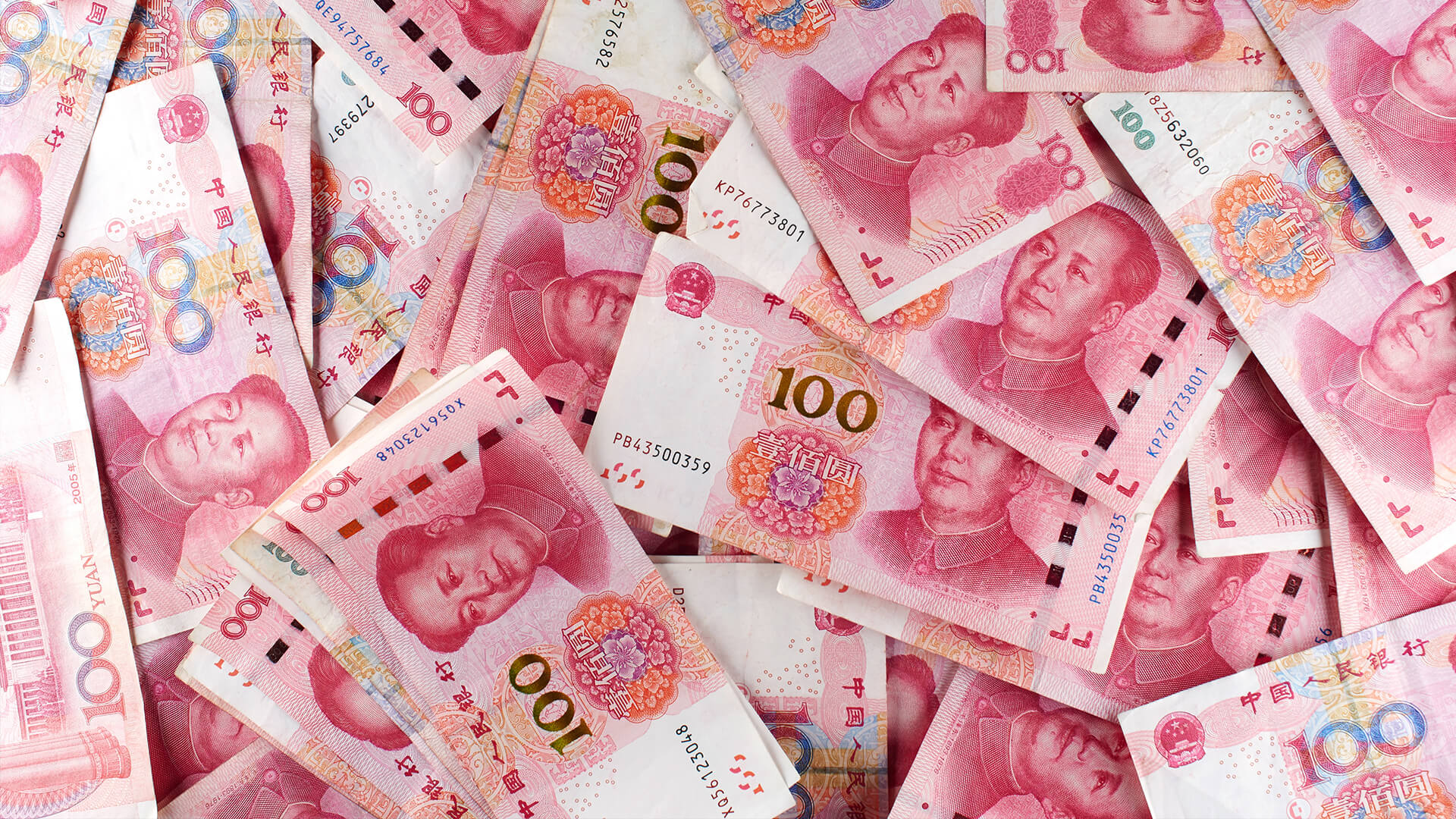Eva Tian of Chung Rui Tax Group Tax Group, a member of Nexia International explores below how the Chinese government has implemented a series of measures including tax relief and direct financial support to get struggling enterprises back on their feet.
The coronavirus infection broke out in China’s Hubei province shortly before the Chinese lunar new year holiday, a time when millions of Chinese people would typically be travelling.
To stop the virus spreading, the Chinese government immediately implemented a series of measures to restrict people from travelling and introduced strict quarantine rules.
While those steps appear to have been effective in the absence of a specific medicine or treatment for the virus, they have also caused resumption of normal working to be considerably delayed.
The Chinese government postponed the country’s first working day after the holiday period from 31 January to 3 February at national level, and the Shanghai government followed suit but extended the postponement by a week. Many employees are now working remotely and communicating online only.
Challenging time
Nevertheless, this is a very challenging time, not only for the tens of thousands of patients and doctors impacted by the epidemic in infected cities, but also for Chinese businesses as they try to come to terms with the immediate consequences and plan long-term recovery.
It appears that the Chinese economy is likely to be negatively impacted by the virus during 2020, and delivering business continuity is the main objective for rebuilding it.
In addition to 14-day quarantine rules to protect those who have been travelling and people close to them, a series of supportive and beneficial policies and treatments have been issued at national and provincial level over recent weeks, with the aim of alleviating the burden on Chinese enterprises.
These measures include changes to taxation and social security payments, as well as practical guidance on how to deal with human resource issues, the impact on immigration, loss of rental income and financial support associated with the outbreak.
Some guidance on the impact on Chinese tax matters and a range of other important business issues is set out below.
Impact on Chinese Taxes
For Chinese Corporate Income Tax (CIT) a series of new rules outlined below came into effect from 1 January 2020 until further notice.
– New or secondhand equipment specifically purchased by businesses for preventing and controlling the epidemic can be recorded as a one-off cost for a pre-deduction of CIT.
– Many businesses ceased operations during the epidemic prevention and control period. For those in hard-hit sectors the carry-forward period of annual losses incurred in 2020 has been extended from five years to eight years. Hard-hit sectors include four key industries: transportation, catering, accommodation and tourism (primarily travel agents and tourist attraction management) as defined by existing national economic industry classifications. Nevertheless, to qualify for the extension, an enterprise’s primary business revenue for 2020 should be more than 50% of its total revenue (excluding tax-free income and income from investments).
– The value of Indirect Donations – donations of cash or supplies for virus protection made through public interest social organisations or People’s government bodies, at or above county level – can be treated as deductible rather than subject to a limitation for CIT calculations. The value of Direct Donations – consisting of prevention and control supplies made to hospitals in charge of epidemic prevention responsibilities – are deductible in full. Normally, the value of Indirect Donations are restricted to 12% of accounting profit and Direct Donations are not eligible. A mandatory donation certificate must be obtained after any donation.
Impact on Value Added Tax
A series of new regulations for Chinese Value Added Tax (VAT) became effective from 1 January 2020 and will only expire on further notice, as and when the situation improves.
– For enterprises producing goods and commodities for epidemic prevention and control, incremental excess input VAT is refundable in full from 1 January 2020 onwards. Incremental excess input VAT is the newly added end-of-term retention tax compared to the end of 2019.
– Revenue derived from transporting goods and commodities for epidemic prevention and control is exempt from VAT charges and also local levies such as city construction tax, education fees and local education fees.
– The revenues of taxpayers providing public transportation, lifestyle services and courier services for essential materials and necessities, are exempt from VAT.
– Organisations and individually owned businesses that manufacture or purchase products to deal with the outbreak that are directly or indirectly donated, are exempt from VAT charges and local levies.
It is worth pointing out that the value of VAT paid on goods and materials imported goods and commodities cannot be deducted from VAT payable on the sale of those goods and commodities.

Impact on Individual Income Tax
Two main changes have impacted Chinese Individual Income Tax (IIT) regulations.
– Medical workers and disease control professionals who have participated in epidemic prevention and control are exempted from IIT on the subsidies and bonuses they receive, according to the standards prescribed by the government. This also applies to medicines and protective devices they receive from their employers.
– Donations made by individuals for epidemic prevention and control, are tax-deductible from the following types of incomes: salary, independent income, author’s remuneration and royalties; business operating income; leasing and transfer of property, interest, dividends and accidental income. Normally, the deductible amount of Indirect Donations is no more than 30% of total taxable income and the amount of Direct Donations is not deductible.
Relaxed import tax rules
The categories of imports eligible for duty-free import into China have been expanded through the Interim Measures for the Exemption of Import Duties on Charitable Donations.
Imported materials donated for epidemic prevention and control are exempt from import duties and import VAT and consumption tax. These include reagents, disinfectants, protective articles, ambulances, epidemic prevention vehicles, disinfection vehicles and emergency command vehicles. The tax-free treatment runs from 1 January to 31 March 2020.
Changes to social security payments
The Ministry of Human Resources and Social Security of China (MHRSS) reacted very quickly to issue a series of HR related circulars on 24 January regarding novel coronavirus infection. Following this, the MHRSS set out its detailed rulings in each city to guide businesses locally.
In Beijing and Shanghai, the timing of social security contributions for the first two months of the year has been postponed to the end of March 2020, with no late payment surcharges, while social security benefit entitlements remain the same as usual.
In Beijing, certain SMEs are eligible to apply for one-off social security subsidies for the period February 2020 to April 2020, up to the maximum of RMB6,315 per person and unemployment subsidies of RMB8,000 per person per year. This applies only to companies that do not dismiss any employees. Businesses applying for these subsidies are also entitled to a vocational training subsidy of RMB1,000 per person as long as cumulative training hours are no less than 40 per person during 2020.
Unemployment subsidies amounting to RMB2.6bn are expected to be given to 140,000 enterprises in Shanghai. The normal timing of the social security base adjustment has been postponed from 1 April 2020 to 1 July 2020, which will reduce total social security payments by RMB10.1bn for both businesses and their employees.
Shanghai businesses affected by the epidemic with employees (including seconded and agency-recruited staff) participating in online vocational training during the operational suspension period, are entitled to training subsidies of up to 95% of the training cost. This also applies to e-commerce companies and other new types of business.
HR and employment issues
The Chinese government has placed emphasis on firms implementing flexible approaches to employment during the epidemic prevention and control period. Employees are encouraged to work at home using telephones and the internet or return to the office on a rotation basis.
If employees have difficulties in resuming work, paid annual leave arrangements can be used as a potential solution. Where resumption of work is heavily interrupted by the epidemic, businesses are being encouraged to make adjustments to salary or leave arrangements to secure employees’ jobs, rather than lay-off workers. Specific approaches should be determined by companies through consultation with their employees.
Any business able to resume work needs to provide the necessary measures to protect the business and workforce from infection. Protective supplies and devices must be provided and detailed guidance rules issued to employees in advance.
Where employees fail to return to work in a timely manner for unjustifiable reasons, businesses should draw up a reasonable layoff plan and carry it out in accordance with Chinese employment law.

Expatriate work permits, visas and immigration matters
Some foreign expatriate workers are protecting themselves by staying out of China and carrying out their duties remotely. In many cities the State Administration of Foreign Experts Affairs has enabled online submissions to be made for new applications, extensions and deregistrations of Chinese work permits.
Examination of paper copies of original documents at a counter has been suspended. Where a work permit or Z visa has expired before a foreign expatriate returns to China, they can apply for other visas to return to China and needn’t reapply for a Z visa.
Rent reductions for businesses
SMEs renting non-residential properties for production and commercial activities from Shanghai-based state-owned enterprises – including all kinds of development zones and industrial parks, start-up bases and high-tech incubators – will have their rents for February and March waived.
Operators of large-scale commercial buildings, shopping malls, industrial parks and other market operators are encouraged to reduce rents for tenants that are physically operating in their buildings.
Any business that reduces rents for tenants and has difficulty in paying property tax and urban land use tax, may apply for an exemption or reduction of the relevant taxes or request financial subsidies from local government.
Financial support
The Bank of Shanghai, the Pudong Development Bank and other financial institutions are being encouraged to increase credit to industries and SMEs affected by the epidemic, and the loan interest rate is being reduced by at least 25 basis points from the Loan Prime Rate (LPR).
Other measures taken to give struggling SMEs financial support include opening up a ‘fast pass’ for applications, using a big data-empowered financing application platform, and adjusting performance appraisal methods.
Looking to the future
According to a recent survey conducted by a well-known real estate agent, only 10% of respondents said they believed novel coronavirus would result in foreign enterprises moving jobs out of China, while 35% thought it was too early to make a judgement and 55% firmly believed no jobs would be moved out of China.
China is now a more mature economy than it was when the SARs virus broke out 17 years ago. Most commentators expect business operations in China to return to normal early in the second quarter of this year.
Pent up demand is likely to reduce the prospects of economic recession in the third quarter, with a full recovery expected by the year-end.
Given that the Chinese government has taken many effective measures to support businesses to navigate through these difficult times, the Chinese people firmly believe their country will win the battle with the virus.







